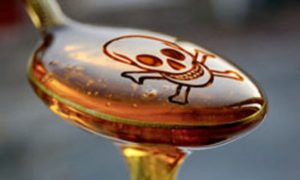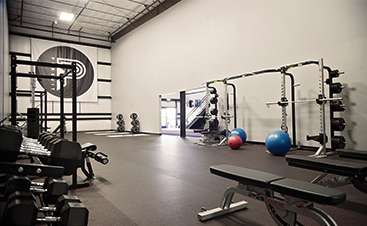Sugar Truths – Is Sugar Addictive?
Is sugar addictive? If so, is it the glucose or fructose portion? What is the mechanism of addiction?
Just about anything is addictive. Whether or not that is positive of negative depends on the context. For example, exercise is just as addictive as Tobacco. Both sugar and exercise produce endorphins like dopamine, which gives us a euphoric bump, that makes us happy. However, one burns calories and one adds calories to our body. Addiction is both psychological and physiological process. That being said, normal sugar that converts to glucose has a natural feedback loop that stops us from over consuming. Fructose on the other hand, lacks the feedback loop necessary to stop over consumption. Therefore, not only is it is physically addicting, it tricks us psychologically but not telling to brain to stop
From the review article, Sugar addiction: is it real? A narrative review, James J DiNicolantonio, James H O’Keefe, William L Wilson summarize how added sugars behave like addictive drugs of abuse:
1. Behaves like addictive drugs of abuse
2. Behaves like a chemical or drug—due to its ‘pure’ white crystalline form, which is readily absorbable leading to unique metabolic harms
3. Habit-forming just like alcohol, tobacco, cocaine, nicotine, tea, coffee and chocolate
4. Induces reward and cravings comparable to addictive drugs, being more rewarding than cocaine
5. Alters mood, induces reward and pleasure, leading to the seeking out of sugar
6. Produces drug-like psychoactive effects
7. Produces cravings comparable to that of cocaine, sex and cigarettes
8. Can produce dependence/addiction (eg, bingeing, withdrawals and cravings) indicating sugar can be addictive
The processed sugars/high fructose corn syrup are the real issue.

Fructose is 7 times more likely than glucose to form Advanced Glycation End Products
Fructose does not suppress ghrelin
Fructose does not stimulate insulin or leptin
Hepatic fructose metabolism is different.
Chronic Fructose exposure promotes metabolic Syndrome.
Glucose and naturally produced fructose metabolizes different than high fructose corn syrup and added sugar. In glucose metabolism, when Citrate is shuttled out of the cell because not all the Acetyl CoA was utilized, which creates a very tiny amount VLDL. This signals the brain to stop eating; this is a normal and healthy process. In high fructose corn syrup, this feedback loop fails to occur because there is no leptin stimulation, causing the body to still think that it is hungry. Naturally occurring fructose, like in fruit and sugar cane is always accompanied by copious amounts of fiber. Therefore, in its natural state, fiber acts as the satiety signal, where fructose does not. Fiber also moves fructose through the gut quicker, which limits its absorption rate.
What are the metabolic fates of fructose? What controls each?
- A small amount of fructose into glycogen, while the rest gets processed as a byproduct. The worst of these byproducts is VLDL. It is mainly made of a triglyceride (fat) which is bound to the VLDL.
- Fructose is metabolized like a fat.
Would sugar explain all cases of obesity or just a subset of individuals?
Sugar is a culprit but not the cause of all obesity. Added sugar and high fructose corn syrup play a role in a lot of cases, perhaps inhibiting our bodies response to leptin and satiety, causing us to overeat. In chronic dosages, it also causes severe stress on the liver, and a whole host of health problems including hypertension, cardiovascular disease and metabolic syndrome. High fructose corn syrup literally processes exactly like alcohol, meaning its actually processes like fat.
What proportion of sugar (glucose and fructose) end up stored as fat in adipocytes? (You may want to go back and review glucose & fructose metabolism from your Nutritional Science course) What affects this? Do we really know? If so, can you show me the data?
Sugar is metabolized in your body both as a carbohydrate and as a fat. Upon entering the digestive tract, sugar breaks down into fructose and glucose. Glucose starts out as a carbohydrate and a little bit is stored as fat. Where fructose is metabolized through your liver, and mostly converted to a fat.
- Glucose: About 20% is stored as glycogen in your muscles and liver. The remainder of the glucose, goes to the bloodstream to serve all cells in your body.
-
Fructose: Can only be processed by the liver. Therefore your liver processes 100% of the fructose. A tiny amount turns into liver glycogen, while the rest get’s turned into VLDL which is the cause of heart disease.
Some communities and groups are proposing and implementing soda and sugar taxes as a disincentive to consume sugar – Is this good nutrition policy?
This is equivocal to making drugs illegal or taxing tobacco. If people are addicted, they will will pay whatever it costs. Plus the tax is so insignificant that it won’t stop people. Education is a much better approach. That being said, taxing high fructose corn syrup is a band-aid on a gaping wound, and it will not stop people from over consuming.
In Strength,
Coach Samson Jagoras
References:
DiNicolantonio, JJ; O’Keefe, JH; and Wilson, WL. (2017) Sugar addiction: is it real? A narrative review. Br J Sports Med Retreived from: https://logan.instructure.com/courses/5387/files/670376/download?wrap=1
Theytaz F, de Giorgi S, Hodson L, Stefanoni N, Rey V, Schneiter P, Giusti V, Tappy L. (2014) Metabolic fate of fructose ingested with and without glucose in a mixed meal. Retrieved from: https://www.ncbi.nlm.nih.gov/pubmed/25029210
University of California Television (2009) Sugar: The Bitter Truth. Retrieved from: https://www.youtube.com/watch?v=dBnniua6-oM



